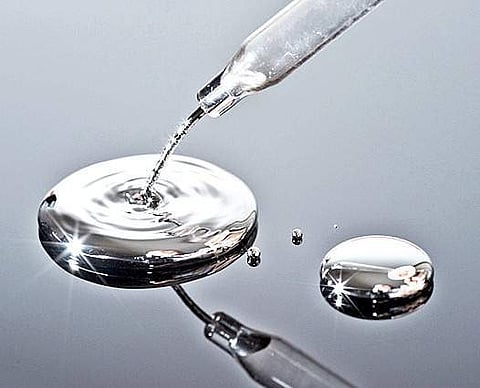

CHENNAI: India failed to ratify a global mercury treaty that came into force on Wednesday, reflecting the government's lack of concern towards mercury pollution and public health.
The Minamata Mercury Convention, a global treaty to protect human health and the environment from the adverse effects of mercury, was signed on 10 October 2013 at a diplomatic conference held in Kumamoto, Japan.
What's interesting is that Minamata is the infamous Japanese town which saw one of the world’s worst mercury poisoning cases in the 1950s. A local chemical plant was blamed for causing the Minamata disease, a neurological disease caused by the hazardous effects of mercury, by emitting untreated wastewater to the Minamata Bay. In later years, Minamata worked hard to change its destiny and is now a model environmental city.
Mercury is a potent chemical which can contaminate air, soil and water. Once in water, mercury can become methyl mercury and poison fish and thereby affect the neurological system of humans who eat them.
India, which expressed willingness to curb mercury pollution by signing the treaty in 2014, is not among the 50 countries which ratified it. China, USA, the European Union and several others have ratified the treaty and will be legally bound by its terms from today.
Noted Chennai-based environmental activist Nityanand Jayaraman said, "India signing the treaty was a step in the right direction. But any delay when it comes to issues concerning the environment is not logical at all."
Has India forgotten Kodaikanal?
Kodaikanal in Tamil Nadu is an active mercury hotspot today. In 1983, Ponds moved its decades-old mercury thermometer factory to Kodaikanal, bordering the dense watershed forests of Pambar Shola. Hindustan Unilever (HUL) acquired the factory to import mercury from the United States, and to export finished thermometers back to the United States and Europe. Following complaints by its workers of kidney-related and other illnesses in 2001, the thermometer factory was shut down.
The workers, with the support of public interest groups and environmental activists, sued the company for health damage due to exposure to toxic mercury vapour. In 2003, HUL was forced to export 289 tons of mercury-contaminated material to a mercury recycling facility in the United States, as there is no facility to treat mercury wastes in India. In 2016, HUL finally settled compensation for its former workers.
Remediation is still not over as the residual mercury in the areas around the factory (higher than naturally ocurring levels) needs to be cleaned up. Residents in the area are still concerned about lingering health effects and pollution during the clean up process, said Jayaraman who was part of the campaign involved in ensuring HUL clean up Kodaikanal.
Shweta Narayan, who assisted the workers of HUL, said, "It is very clear our stand is callous. The duty of the government is to protect the environment and the citizens. The government should do all in its power to ensure we are safe. Is India not committed to cleaning up? Is India not committed to public health?"
Singrauli region, in Uttar Pradesh's Sonbhadra district (and spills over into Madhya Pradesh) and Ganjam in Odisha, are the other major zones of mercury contamination in the country.
Double Trouble
The ministry of environment, forest and climate change had decided to amend the Environment (Protection) Rules, 1986, with the Environment (Protection) Amendment Rules, 2015, by fixing December 2017 as the deadline to meet new stringent norms to reduce emissions of particulate matter, sulphur dioxide, nitrogen oxides, reduced water usage as well as mercury (included for the first time) by coal-fuelled thermal power plants.
Reducing emissions in thermal power companies, which account for 80 per cent of all industrial emissions, is a costly and challenging affair and the Central Electricity Authority is currently seeking an extension to the December 2017 deadline from the environment ministry, according to a February 9 Indian Express report. The power plants are yet to meet the new norms.
In the current scenario, if India, the world’s third largest energy consuming economy after the US and China, miss the December 2017 deadline as well (as part of its commitment to the United Nations Framework Convention on Climate Change adopted by 195 countries in Paris in December 2015), raising international funding is definitely going to be tough. Shweta Narayan agreed, "We have missed out on resources and an outline of best practices by not ratifying the treaty."
Population clusters around India's growing number of thermal power plants are definitely in the line of danger. Our poor waste management only exacerbates it, added Nityanand Jayaraman.